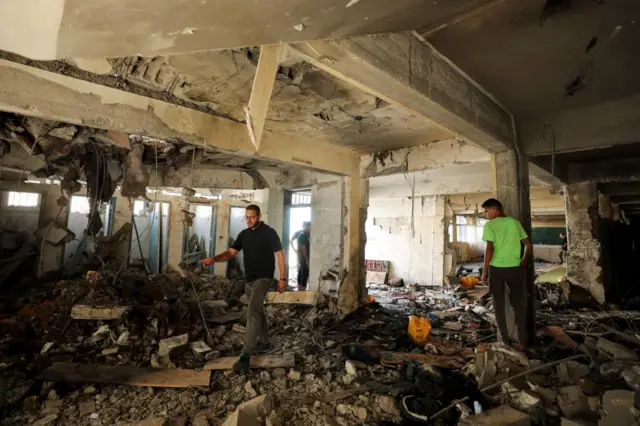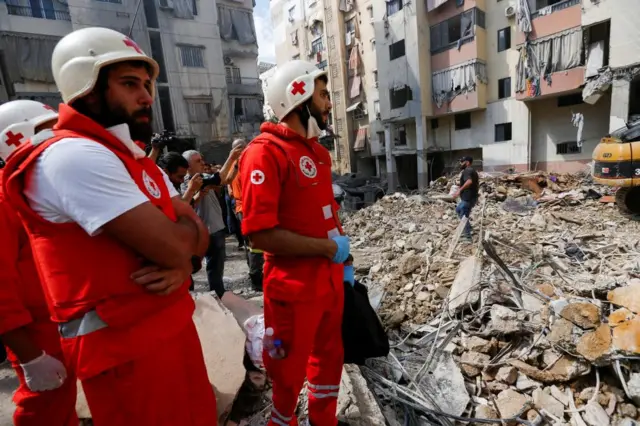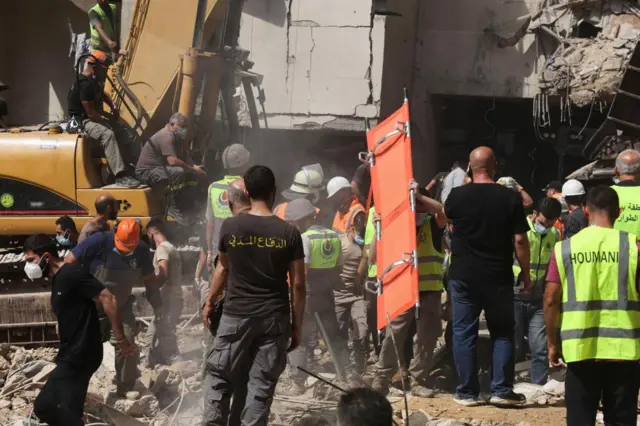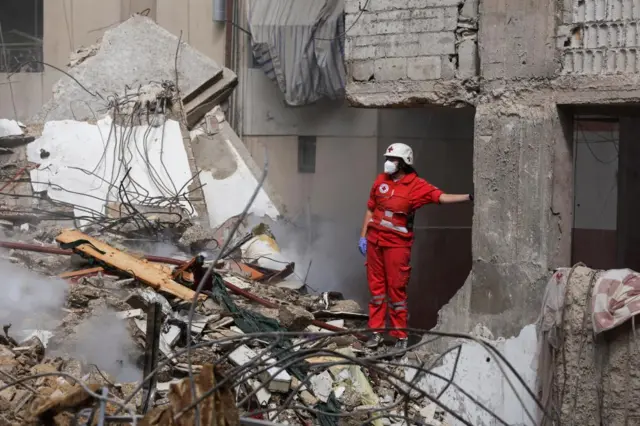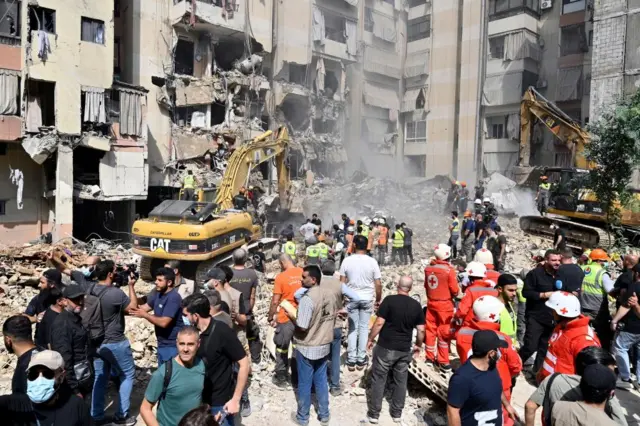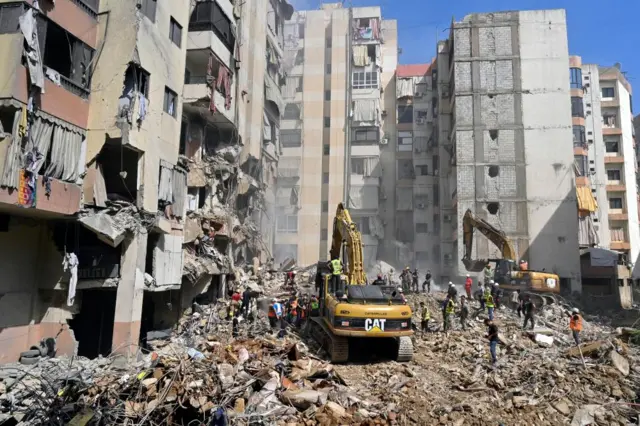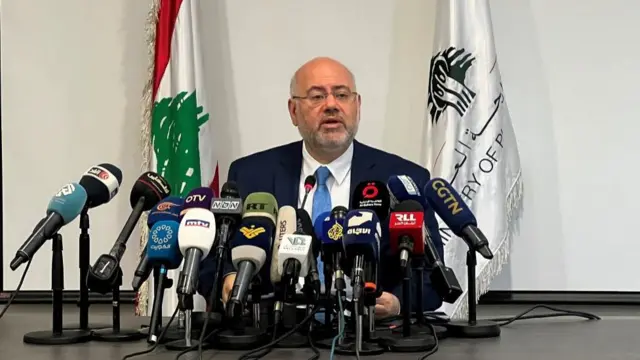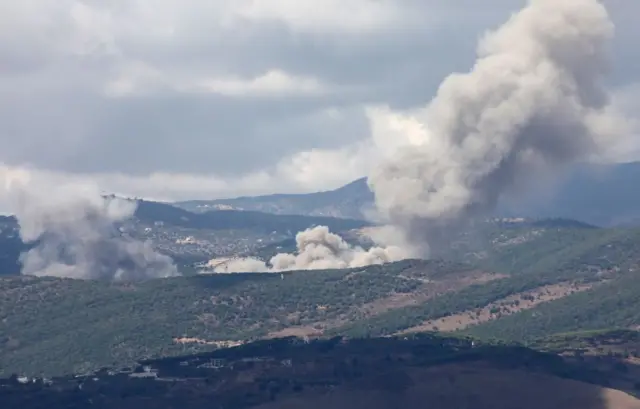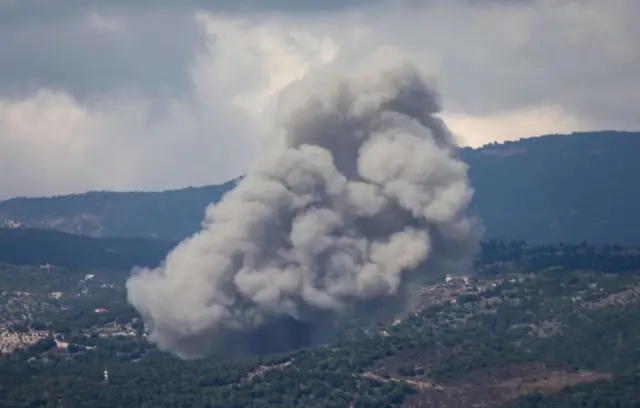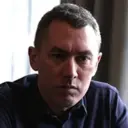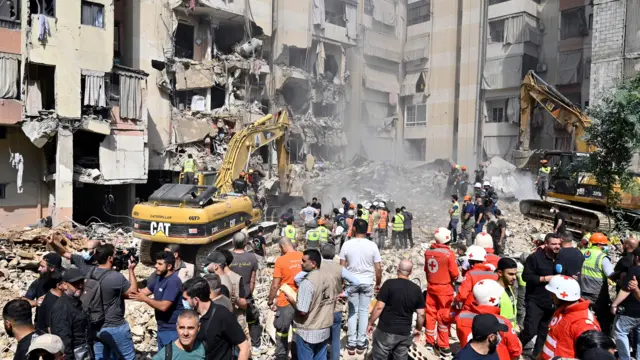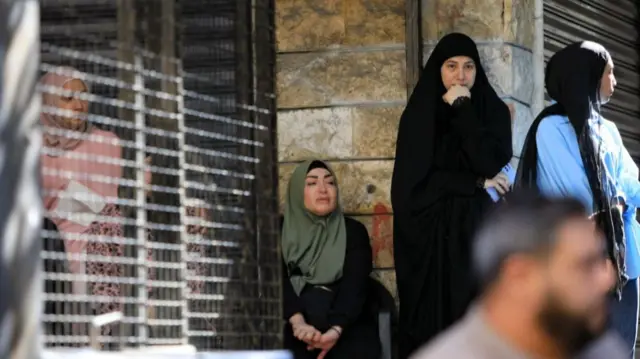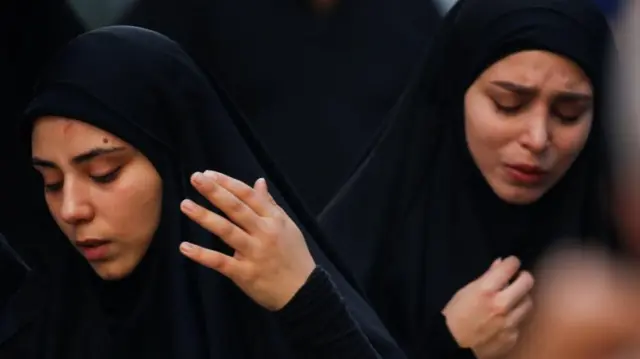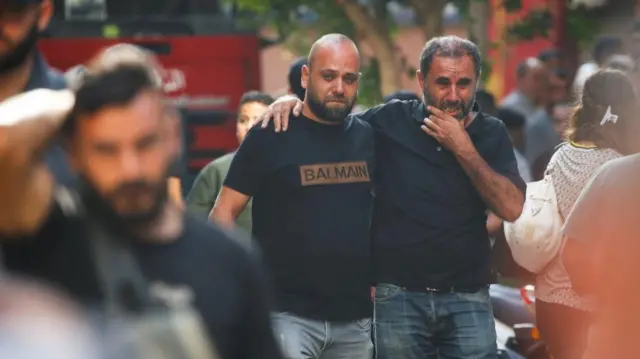Lebanon's PM calls on countries to take clear position on 'horrific massacres'published at 16:32 BST 21 September 2024
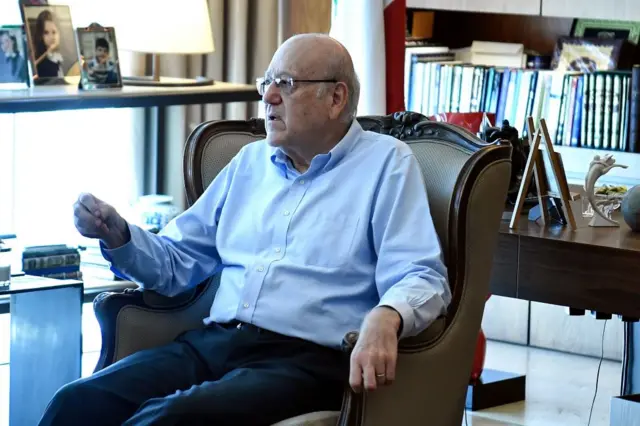 Image source, EPA-EFE/REX/Shutterstock
Image source, EPA-EFE/REX/ShutterstockLebanon's prime minister has called on the international community to "take a clear position" on what he calls "these horrific massacres" in a statement published this afternoon.
Prime Minister Najib Mikati says he had intended to travel to New York to participate at the UN's General Assembly, but decided not to travel after this week's developments.
"I reiterate that there is no priority at the present time that is higher than stopping the massacres committed by the Israeli enemy and the various types of wars it is waging," the statement reads.
"I also call on the international community and the human conscience to take a clear position on these horrific massacres."
Mikati also calls for the "adoption of international laws to neutralize civilian technological means from military and war targets" in the wake of the pager and walkie-talkie attacks.
